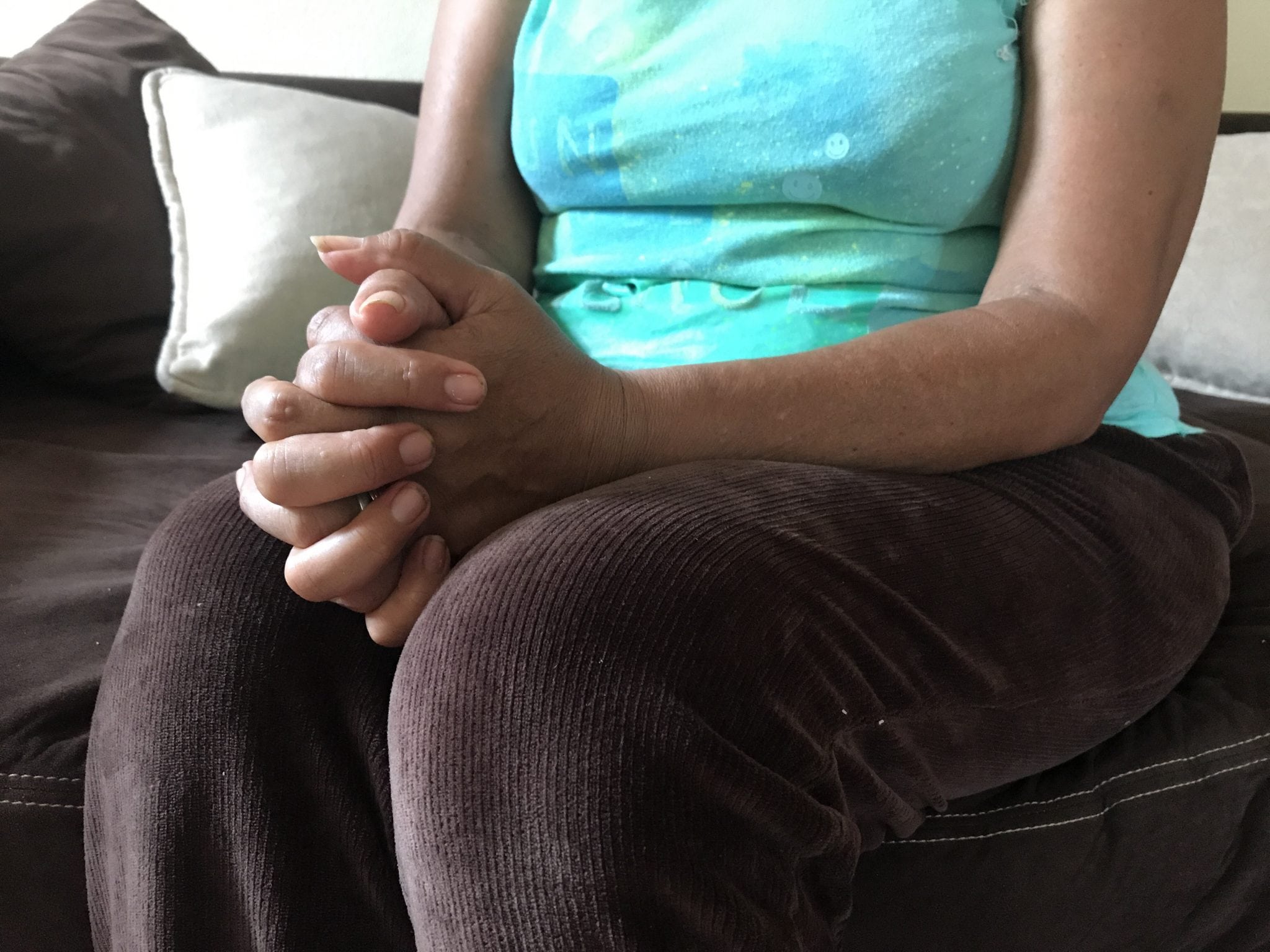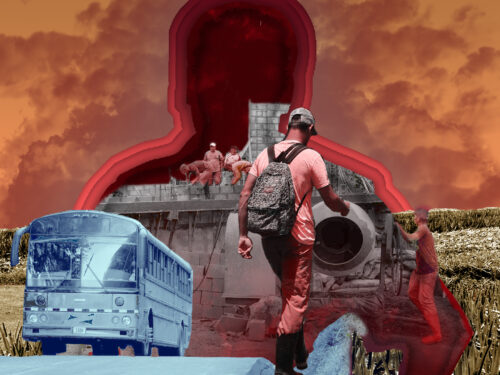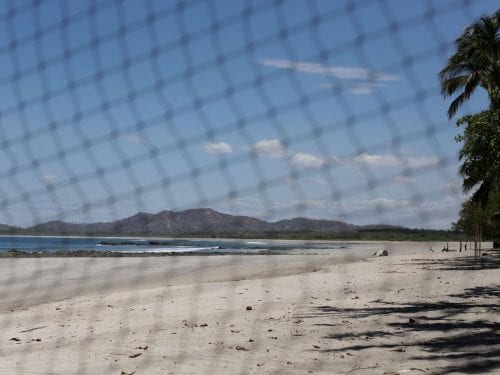
On the afternoon of July 21, Milagros and her daughter Ana were in a cook’s trance, cubing cheese, dicing peppers and chunking chicken that goldened with vinegar in a pan. The women worked in deft control of the Tamarindo kitchen as if it were their own.
Kevin and Leslie McDermott, the American homeowners, granted Milagros the space to cook. Milagros, a pastor from Nicaragua, treated a group of American mission trip guests with a meal and a story of how her family fled to Costa Rica a month earlier:
Her son had run out of his university in Jinotepe dodging bullets, shielding his girlfriend with a backpack full of books. Milagros knew people killed by paramilitaries. The pastor had been warned that her own life was in danger, due to her affiliation with the United States.
But thanks to a network of missionaries, the refugee family has been welcomed by Tamarindo Church, the McDermotts’ congregation. The church donates necessities to two Nicaraguan families seeking shelter and solidarity.
“Kevin and Leslie have been our angels here,” Milagros wept. “They’re always wondering if we have food…They’ve given us glasses, plates, food, and above all, love.”
The UN Refugee Agency (UNHCR) reports that Costa Rica lodges an average of 200 asylum applications a day. According to Costa Rican authorities, around 5,000 asylum claims by Nicaraguan refugees have been registered since the crisis started. Like the two Nicaraguan families interviewed by The Voice in Tamarindo, many refugees seek safety and jobs.
In Costa Rica, immigrants contribute 11% of gross added value in the country, according to the Organization for Economic Co-operation and Development (OECD) report “How Immigrants Contribute to Costa Rica’s Economy.”
The UN agency said that many incoming Nicaraguans are hosted by the 100,000 to 150,000 Nicaraguan families living already in Costa Rica. The Ministry of Foreign Affairs and Religion told The Voice of Guanacaste in July that the country has received around $200,000 from UNHCR and the International Organization for Migration.
With one of two official border crossings from Nicaragua into Costa Rica located at Peñas Blancas, the Chorotega province is an inevitable refuge for many Nicaraguans fleeing the crisis in search of safety and jobs. As these families adjust to new communities, some have no choice but to rely on the kindness of strangers.
“Where you know nobody”
Carlos’s pink one-bedroom rental in Tamarindo is spare; the Nicaraguan arrived with his wife, 5-year-old son and three pieces of luggage in June.
“It’s so sad to leave your country, to go to a different country where you know nobody,” Carlos said in his living room in July, in a temporary house that Tamarindo Church helped him find.
Leslie McDermott had been walking a neighbor’s dog on the afternoon in June when she found Carlos’s family at the bus stop in downtown Tamarindo.
“They just looked tired, they sort of just looked lost,” McDermott said. “Like they were just waiting for something.”
Carlos told her they’d recently arrived from Nicaragua with nowhere to go, but a friend had told them to seek out Tamarindo Church. The expat rushed to a juice stand and returned with food. She covered their night at a hostel and drove the family to church the next morning.
Back in Nicaragua, Carlos had used his English as a bartender and tour guide near Leon. When mid-April arrived, at first his wife Maritsa couldn’t believe the bloody images that flashed on TV. The last time the country had been rocked by this level of violence was during the dawn of the 80s. Carlos began researching the previous era of unrest that involved the fall of dictator Somoza at the hands of Ortega – now himself considered a tyrant.
“I said, wow, this is the same story repeating itself,” Carlos said. “Better to get out early.”
Carlos’s brother in Managua had already fled his home when he learned of plans to burn it down. His brother had been speaking out against the regime, Carlos said, which these days comes with a price. There’s the suspicion that your neighbors could be spies, ready to report rebels.
On a Saturday afternoon in their temporary living room, Carlos’ son, Mario, runs a toy truck up and down his mother’s arm like a mountain.
“The first day was hard because he didn’t have anybody to play with,” Maritsa said.
Beyond the family’s safety, the trip to Costa Rica was also driven by Carlos’s need for a job — violence sucked Nicaragua’s tourism dry. The family ended up in Tamarindo thanks to his Googling; he decided on the tourist hub close to the border to help him land a job.
Carlos says he’s already sought out work as a bartender, tour guide and surf instructor, but has been turned down each time with the excuse that Costa Rica’s tourism is in low season. He has had little with work besides a week-long painting job. Not having a work permit complicates his situation.
Although the family in Tamarindo helped him so much, Carlos has also experienced discrimination from Ticos rooted in his Nicaraguan identity, which could make his job search even harder.
“You know, some Costa Ricans they don’t like Nicaraguans,” Carlos said. “They don’t say hi to you. You can feel it, you know.”
On one of their first nights in Costa Rica, the family stayed in Huacas and was in search of food for their son. Even though there was plenty of food available at a restaurant they visited, the workers wouldn’t sell to Carlos, he said. They only permitted him a bottle of water. Without any other food available in town, his son went to bed hungry.
“We’re not interested to stay here forever,” he said. “Just for the problems going on in Nicaragua, so that my family can be safe.”
Carlos and his family decided to return to Nicaragua in August. His wife needed medical attention, but Costa Rica was too expensive. Carlos is still vigilant about protecting his identity.
*Names in this report have been changed for safety reasons.







Comments